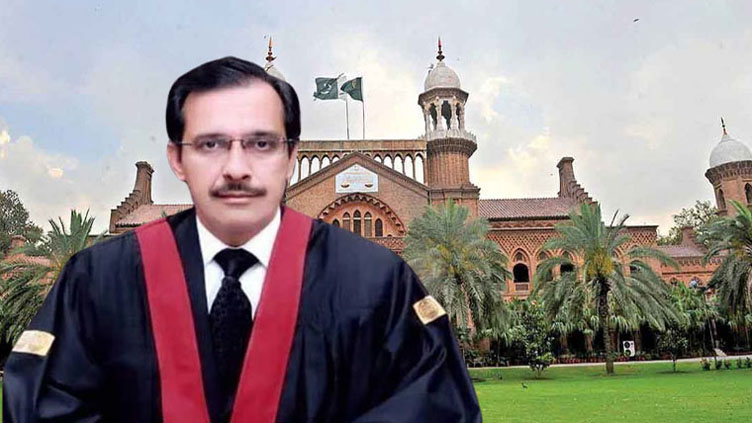LHC directs PM Office, police to make sure there is no interference in judicial affairs

Pakistan
Justice Shahid Karim issues five-point SOPs in case of Sargodha judge
LAHORE (Dunya News) - The Lahore High Court (LHC) has issued five-point standard operating procedures (SOPs) to end inference in judicial matters.
LHC’s Justice Shahid Karim has issued the interim four-page written order and appointed Hina Hafeezullah judicial assistant.
As per SOPs, the Prime Minister Office is obliged to direct intelligence agencies to abstain from approaching any judge or staff of high courts and subordinate courts.
The Punjab Inspector General (IG) of Police has also been instructed to direct officers to not interfere in judicial matters.
The security measures for anti-terrorism courts (ATC) will not be taken without the consultation and approval of the relevant judge.
The ATC judge is responsible for recording every call.
Punjab special courts are responsible to issue the verdict on all cases of May 9 incident on a priority basis.
Justice Shahid Karim directed the judicial staff for assistance in the investigation of Sargodha ATC judge's matter.
Judicial staff was responsible to record video of the investigation and provide it to the court by July 8.
Former LHC chief justice Malik Shahzad Ahmad Khan had taken a suo motu notice on the judge’s complaint filed with the registrar and started proceedings. Following his elevation to the Supreme Court, Justice Karim presided over the case.
At the previous hearing, Justice Karim had remarked that Prime Minister Shehbaz Sharif was responsible and answerable for the actions of intelligence agencies as they came under his command.
The Case
The Sargodha ATC judge said he took charge on June 7 and on the very first day he was told that “some authority of ISI” wanted to see him in his chamber. The judge said he declined to meet the person concerned.
He said he and his family were intimidated one way or the other.
What's the matter of judicial interference?
On March 25, six judges of the Islamabad High Court wrote a letter to the Supreme Judicial Council regarding ‘interference of intelligence agencies in judicial matters’.
These judges were Justice Mohsin Akhtar Kiyani, Justice Tariq Mahmood Jahangiri, Justice Babar Sattar, Justice Sardar Ejaz Ishaq Khan, Justice Arbab Muhammad Tahir and Justice Saman Rafat Imtiaz.
Read more: Six IHC judges write to SJC against 'interference' in judicial matters
Four judges of the Lahore High Court (LHC) received threatening letters a day after some Islamabad High Court judges got similar post.
IHC's Justice Babar Sattar had pointed out alleged interference by Establishment in judicial affairs.
Justice Sattar penned a letter to IHC Chief Justice Aamer Farooq, informing him that he was asked to back off from the audio leak case.
The case is related to the petitions filed by PTI founder’s wife Bushra Bibi and Najam Saqib, son of former chief justice of Pakistan (CJP) Saqib Nisar, last year against the audio leaks.
Chief Justice Qazi Faez Isa, along with three other judges of the Supreme Court, Justice Athar Minallah, Justice Jamal Mandokhail, and Justice Aminuddin received the threatening letters, all of which were received in the Supreme Court on April 1.
The Supreme Court took suo moto notice of the letter written by the six judges of IHC, just days after the federal government formed a commission to investigate the interference allegations and criticism on the part of some circles over the move.
Also read: PM Shehbaz promises probe into letters threatening judges


